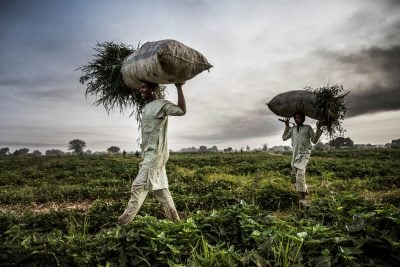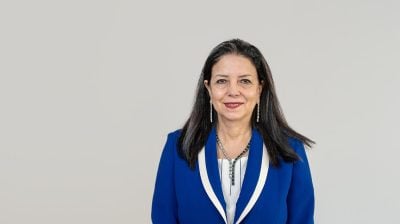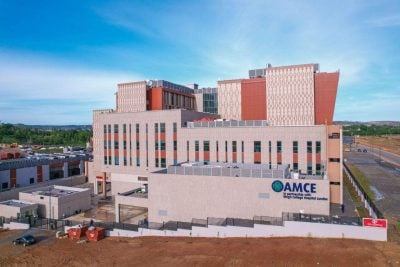The murder of Oromo singer and activist Hachalu Hundessa in late June has led to civil unrest and government clampdowns that could threaten Ethiopia’s reform process. Tom Collins reports
It was two weeks after the fatal shooting of popular Oromo singer and activist Hachalu Hundessa in Addis Ababa on 29 June that the true extent of the damages wrought by civil unrest in Ethiopia became clear.
After the internet ban imposed by the government shortly after the musician’s death was lifted, scenes of looted shops and damaged property in towns across the Oromia region filtered out to the wider world, evidence of the unrest that led to at least 177 deaths and 5,000 arrests, rights groups say.
Hundessa’s music was the soundtrack to Oromo protests that eventually brought an end to over two decades of Tigray-dominated rule in Ethiopia.
His death has ignited growing discontent within his community over prime minister Abiy Ahmed’s national vision for the country, which some see as weakening Oromia’s federally enshrined role and encroaching on its people’s culture and tradition.
Two murder suspects have been arrested and a third is reported still to be on the run. The government has linked them to the militant wing of the once-banned Oromo Liberation Front (OLF) – an organisation crafted to achieve self-determination for Ethiopia’s largest ethnic group.
Though Abiy was lauded for introducing a raft of economic and democratic reforms upon entering office in 2018, allegations of authoritarianism – including the arbitrary arrest of journalists and opposition figures – leave many fearful that Ethiopia’s recent spate of positive news is fading.
“This has been the most significant and concentrated outburst of violence since the transition,” says Murithi Mutiga, Crisis Group’s project director for the Horn of Africa.
“There has been a steady drumbeat of ethnic displacement and killings across the country but this is one of the most serious challenges Abiy has faced since coming into office. The danger is that in asserting himself and trying to gain control, he may move in a more illiberal direction.”
Scattergun approach
Abiy has responded to the instability by rounding up scores of opposition figures and seeking to blame foreign and domestic detractors, often without giving evidence, critics say.
The whereabouts of dozens of influential politicians and journalists including Jawar Mohammed, founder of the Oromia Media Network (OMN), Bekele Gerba, deputy chairman of the Oromo Federalist Congress party, and blogger Eskinder Nega were still unknown at the time of writing.
The prime minister has attempted to paint the OLF as a regional threat by suggesting it is an expansionist movement that seeks to incorporate Oromo peoples across the border in Kenya, known as the Borana, into a “greater Oromia”.
Official sources have also linked the opposition Tigray People’s Liberation Front (TPLF) to the assassination, while Abiy has referred to “two-faced” officials in his own government who are working with “extremist elements”, which some see as suggestive of an imminent ministerial purge.
The arrested suspects had still not been charged at the time of writing. If the police investigation is not seen to be impartial, Abiy’s approach may further aggravate tensions that have come to the fore since he released political prisoners and lifted clampdowns on institutional and social media.
“There is a lot of speculation in terms of what has happened with regards to Hundessa’s killing,” says Ahmed Soliman, Horn of Africa researcher at Chatham House.
“The prime minister has come out with a scattergun approach and blamed different institutions without providing evidence, which is unhelpful. There needs to be a proper judicial process to identify what has happened and who may have carried out this act.”
Tensions high
The prime minister’s theories come at a time when government tensions with the Tigray region, which is governed by the TPLF, and Egypt are high. Ethiopia and Egypt have failed to reach a diplomatic agreement over the filling of the Grand Ethiopian Renaissance Dam on the Nile – which Egypt claims is a threat to its water security – in an ongoing dispute that could escalate and draw in other regional powers.
Experts have also expressed concern over Tigray’s decision to hold unilateral elections in August, in defiance of the government’s decision to postpone national and regional elections until 2021 due to the Covid-19 pandemic.
Since the prime minister, an Oromo, came to power in 2018 the once dominant Tigray elite have retreated to their region.
“The Tigray election is perhaps one of the biggest challenges to stability in Ethiopia,” says Crisis Group’s Mutiga.
“There is a sense of grievance at the way various TPLF elites were treated after the transition. They are also well armed and have a complement of security forces. It all looks quite ominous. The centre has warned that they will not allow the elections to go ahead. This is a dispute which could turn very ugly, very quickly.”
Some analysts say that Abiy’s improved relations with Eritrea are a mutually beneficial strategy to contain the Tigray region, which has a historically tense relationship with Eritrean president Isaias Afwerki.
Though Abiy won the Nobel Peace Prize in 2019 after negotiating an end to conflict with Eritrea – one of Africa’s longest low-level conflicts – the peace agreement has been criticised for its failure to involve multiple parties.
Reform programme at risk
While Ethiopia was heralded as the world’s fastest growing economy in 2018, many are concerned that the recent unrest and the threat of further instability will derail promising initiatives that could aid growth prospects, including the liberalisation of the banking and telecoms sectors.
As a result of Covid-19, the IMF has already cut Ethiopia’s growth to 3.2% this year – the lowest since 2004.
Violence may dent investor confidence further, while foreign partners wait to see how Abiy handles the upcoming election in Tigray, the dispute with Egypt over the GERD, and the peace and stability of the country as it heads towards a general election next year.
“Layered on top of the current unrest is the impact of Covid-19 on key export sectors and considerably high rates of unemployment among the youth,” says Mutiga.
“Despite how attractive Ethiopia is, investor confidence won’t be helped by rounds of unrest. It would be helpful if evidence emerges of a durable compact formed with elites about how to manage the way forward.”
Related article
Want to continue reading? Subscribe today.
You've read all your free articles for this month! Subscribe now to enjoy full access to our content.
Digital Monthly
£8.00 / month
Receive full unlimited access to our articles, opinions, podcasts and more.
Digital Yearly
£70.00 / year
Our best value offer - save £26 and gain access to all of our digital content for an entire year!

 Sign in with Google
Sign in with Google 


